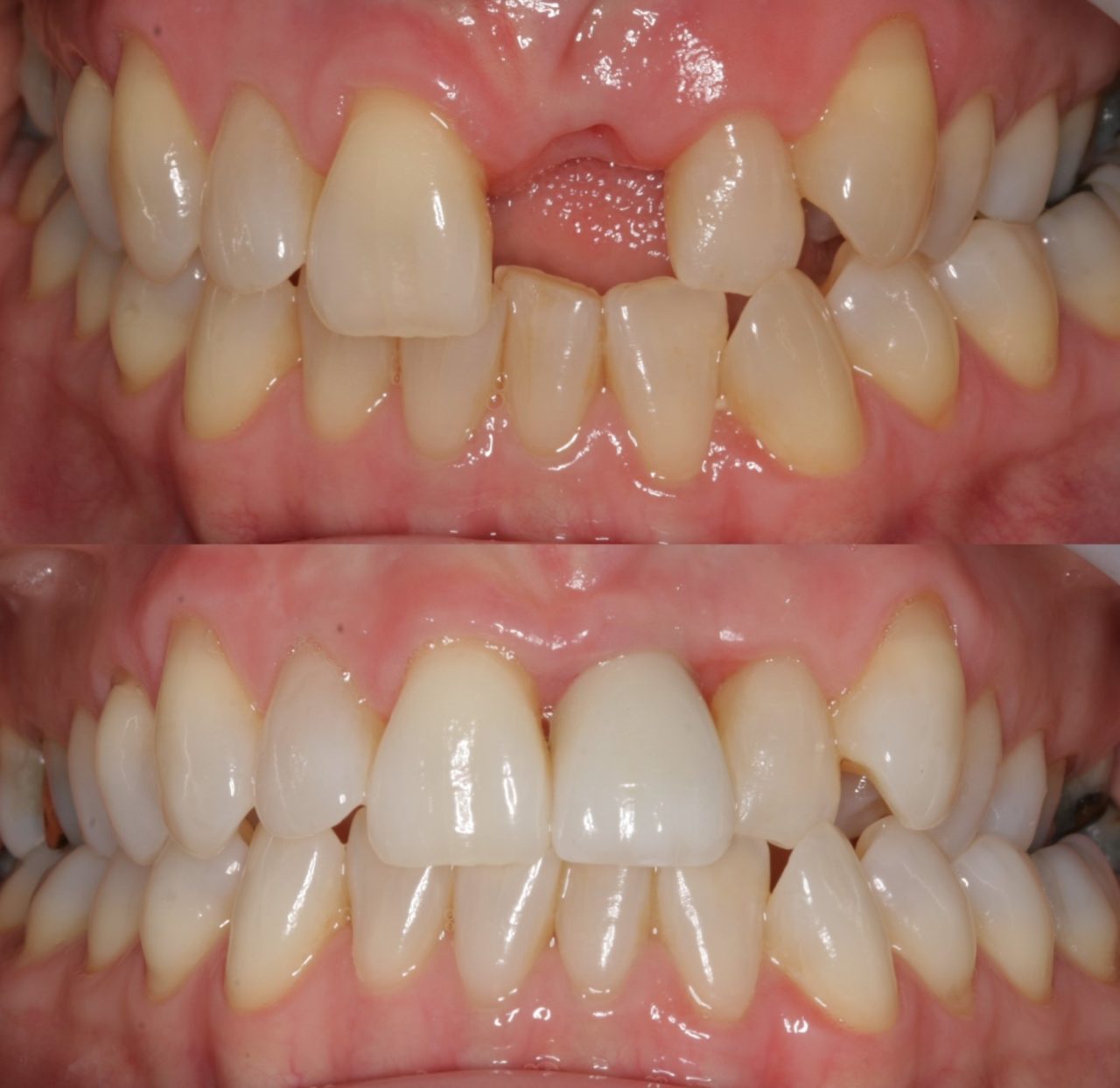Dental Implants
Dental implants have been used for over 50 years to reliably replace missing teeth. They may be used if one, several or all of the teeth are absent and can avoid the need for conventional removable dentures or bridgework.
Dental implants have many advantages
• Implants can look, feel and function like your natural teeth.
• Implants can prevent preparation of adjacent teeth.
• Like natural teeth, dental implants stimulate bone tissue and gums, helping to maintain facial structures.
• Dental implants can eliminate the discomfort and insecurity of loose, ill-fitting dentures.
We accept referrals from over 75 practices and 150 individual dentists for dental implants. Implant treatment begins with an initial consultation with Mark Edmondson or Jonathan Kennair. in conjunction with one of our restorative dentists – either Dr Steven Schofield, Dr Ralph Pickup, Dr Sally Bradbury, Dr Anca Jarmany or Dr Christian Lee.
We place Dentsply (AstraTech) and Straumann dental implants. These are well established systems with a proven track record over decades. Since 2001, Mark Edmondson and Jonathan Kennair have placed over 7000 dental implants. The team is keen to monitor how our implant restorations perform and the practice is very proud of their long term maintenance program.
When a tooth is lost it is sometimes possible for the bone to shrink. The practice can advise and provide treatment of bone augmentation if needed.
Implants can often be placed even if the teeth have been missing for years. However, the bone that supports a natural tooth gradually disappears following its loss. This can make placing the implant technically more difficult, compromise the final appearance or more likely require the use of a bone graft.
For this reason, to prevent bone loss and are considering implant treatment, let us know as soon as possible. If an implant is planned to replace a tooth that is still present, we advise that the extraction is done by our oral surgeon. This is so that the tooth may be removed in such a way as to preserve as much of the bone as possible and to allow inspection of the tooth socket. The implant can then be placed as a planned procedure at the optimal time.
Dental implants are especially useful in helping to stabilise loose dentures. Again, bone loss following the loss of the natural teeth can complicate treatment and implant treatment is generally more successful if fixtures are placed early on.
Implant treatment begins with an initial consultation with Mark Edmondson. The fee for this is £150.00. This takes around an hour and includes x-rays of the teeth and jaws. Additional consultations are without charge. It may be necessary to produce temporary restorations, make a diagnostic wax-up or carry out further investigations. You will be advised of additional fees before this is arranged.
A cone-beam CT scanner is available at the practice so that all x-ray investigations may be done in house.

